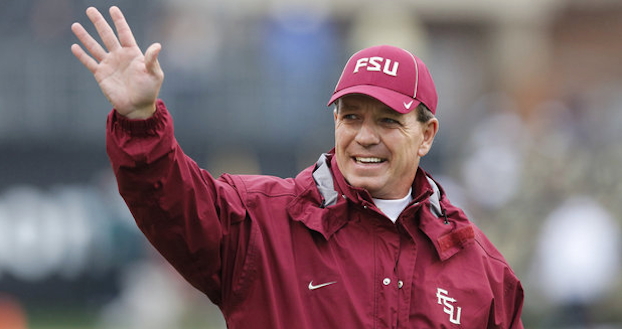The NCAA Division I Council’s April 8 decision to ban satellite football camps can only be perceived as a victory for conferences such as the ACC, which had little to gain and plenty to lose from programs in other parts of the country coming to the Southeast to conduct recruiting clinics. And for college coaches who already spend days, if not weeks, on recruiting trips at various times of the year, it’s as much a win for them as for the conferences as a whole.
The national media has espoused the hypocrisy of leagues such as the SEC and ACC in this case to try and limit the recruiting impact of non-regional programs. Specifically, many feel this is a “get Jim Harbaugh” ploy following the Michigan head coach’s antics last summer, including when he took off his shirt at one satellite camp in Alabama.
The Big Ten had stepped away from its Power 5 peers in support of the satellite camp concept, as schools such as Michigan, Penn State, Ohio State and others attempted to make further inroads in states such as Florida and Georgia. Michigan, in particular, took the concept to another level last summer, conducting a series of eight workouts throughout the Southeast that raised eyebrows in the region. Not long after, the SEC began a push to ban the satellite camps.
It won.
“The Council approved a proposal applicable to the Football Bowl Subdivision that would require those schools to conduct camps and clinics at their school’s facilities or at facilities regularly used for practice or competition,” said the NCAA Division I council’s release after a 10-5 vote on the matter. “Additionally, FBS coaches and non-coaching staff members with responsibilities specific to football may be employed only at their school’s camps or clinics. This rule change is effective immediately.”
While it’s certainly debatable just how big a problem satellites camps were and are, it can be safely said that the SEC and ACC are protecting their long-range interests by working to ban satellite camps. Get access to the rest of this article and unlimited access to the rest of ACCSports.com when you upgrade to Premium Access! Click on the button below to view all the benefits of becoming a Premium Access member.Get the rest of the story right now with Premium Access!
Premium Access members receive:

















